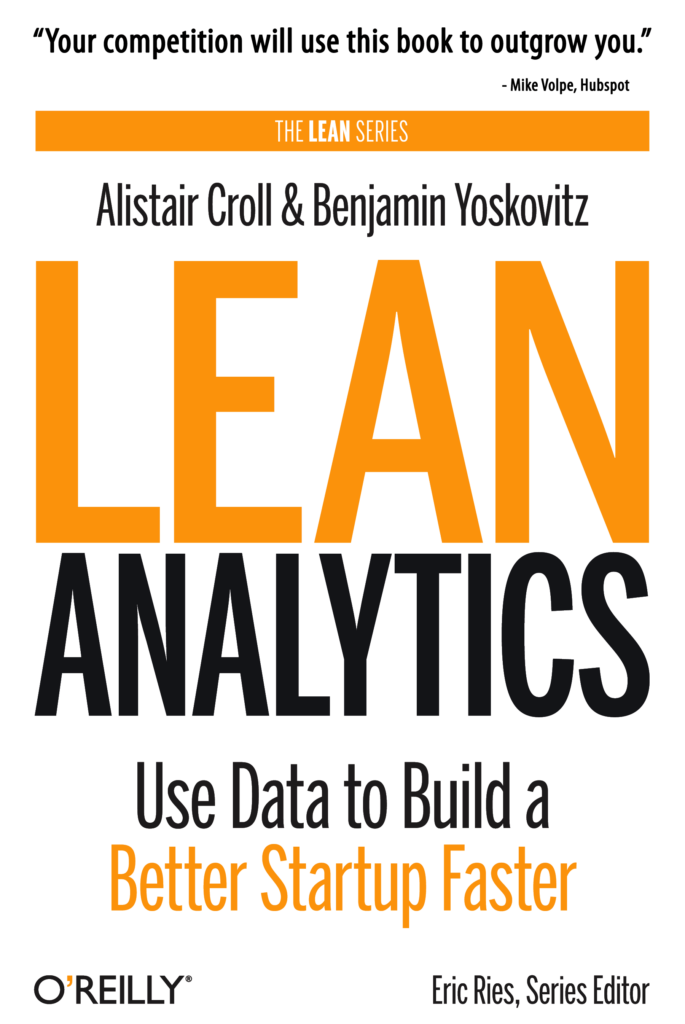Lean Analytics: Use Data to Build a Better Startup Faster
Alistair Croll, Benjamin Yoskovitz

Whether you’re a startup founder trying to disrupt an industry or an intrapreneur trying to provoke change from within, your biggest challenge is creating a product people actually want. Lean Analytics steers you in the right direction.
This book shows you how to validate your initial idea, find the right customers, decide what to build, how to monetize your business, and how to spread the word. Packed with more than thirty case studies and insights from over a hundred business experts, Lean Analytics provides you with hard-won, real-world information no entrepreneur can afford to go without.
Key Summary
Lean Analytics is a guide to using data to build a better startup faster. It shows entrepreneurs and startups how to measure and analyze the right data to make informed decisions, drive growth, and avoid failure. The book covers the basics of analytics and data-driven decision-making, and provides practical, actionable advice on how to use data to make informed decisions, create a minimum viable product (MVP), and optimize customer acquisition, activation, and retention.
Takeaways
1. Start with the right problem: Identify the core challenge that your startup is trying to solve and make sure that the data you collect is directly relevant to that problem.
2. Choose the right metrics: Determine the key metrics that will help you measure your progress and success, and make sure that you are tracking them consistently.
3. Create a minimum viable product (MVP): Use data to validate your assumptions about what customers want and need, and then build a product that meets those needs.
4. Optimize customer acquisition: Use data to identify the most effective channels for acquiring new customers and then optimize your spending on those channels to maximize your return on investment.
5. Improve activation and retention: Use data to understand why customers are leaving and what you can do to keep them engaged and loyal.
6. Focus on growth: Use data to measure the impact of changes you make to your product and marketing strategies, and make decisions that drive sustainable, long-term growth.
7. Use experiments to validate assumptions: Use controlled experiments to validate your assumptions about what drives customer behavior and what changes will have the greatest impact on your business.
8. Use data to make informed decisions: Use data to make decisions about product development, marketing, and business strategy, and to measure the impact of those decisions over time.
9. Build a data-driven culture: Create a company culture that values data and encourages everyone to use data to make informed decisions and drive growth.
10. Continuously improve: Use data to continuously improve your product, marketing, and business strategies, and to make better decisions over time. Lean Analytics is a never-ending process of experimentation, data collection, and continuous improvement.